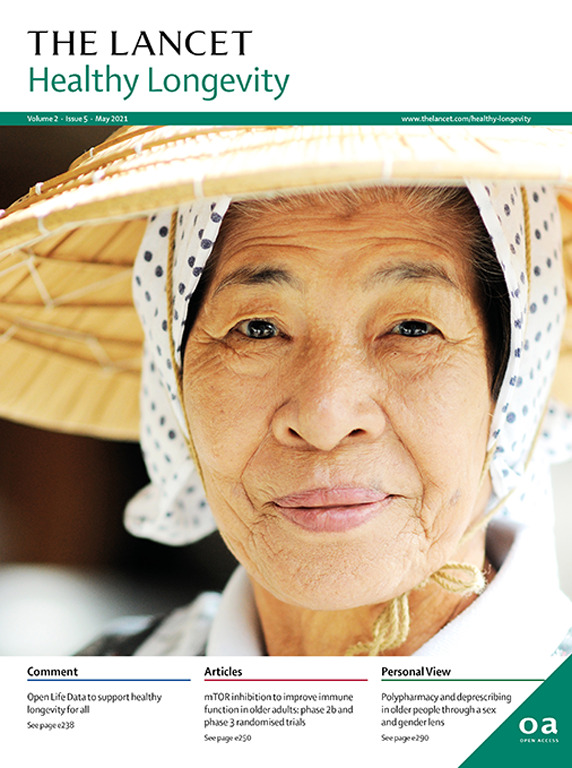Next generation brain health: transforming global research and public health to promote prevention of dementia and reduce its risk in young adult populations
IF 14.6
Q1 GERIATRICS & GERONTOLOGY
引用次数: 0
Abstract
Efforts to prevent dementia can benefit from precision interventions delivered to the right population at the right time; that is, when the potential to reduce risk is the highest. Young adults (aged 18–39 years) are a neglected population in dementia research and policy making despite being highly exposed to several known modifiable risk factors. The risk and protective factors that have the biggest effect on dementia outcomes in young adulthood, and how these associations differ across regions and groups, still remain unclear. To address these uncertainties, the Next Generation Brain Health team convened a multidisciplinary expert group representing 15 nations across six continents. We identified several high-priority modifiable factors in young adulthood and devised five key recommendations for promoting brain health, ranging from individual to policy levels. Increasing research and policy focus on brain health across the life course, inclusive of younger populations, is the next crucial step in the efforts to prevent dementia at the global level.
下一代大脑健康:改变全球研究和公共卫生,以促进痴呆症的预防并降低青年人群的痴呆症风险。
预防痴呆症的努力可以受益于在正确的时间向正确的人群提供精确的干预措施;也就是说,当降低风险的潜力最大的时候。年轻人(18-39岁)在痴呆症研究和政策制定中是一个被忽视的人群,尽管他们高度暴露于几个已知的可改变的风险因素。对青年期痴呆结果影响最大的风险和保护因素,以及这些关联在不同地区和群体之间的差异,目前仍不清楚。为了解决这些不确定性,下一代大脑健康团队召集了一个代表六大洲15个国家的多学科专家组。我们确定了青年期几个高优先级的可改变因素,并设计了从个人到政策层面促进大脑健康的五项关键建议。加强对包括年轻人在内的整个生命过程中大脑健康的研究和政策关注,是在全球一级预防痴呆症工作的下一个关键步骤。
本文章由计算机程序翻译,如有差异,请以英文原文为准。
求助全文
约1分钟内获得全文
求助全文
来源期刊

Lancet Healthy Longevity
GERIATRICS & GERONTOLOGY-
CiteScore
16.30
自引率
2.30%
发文量
192
审稿时长
12 weeks
期刊介绍:
The Lancet Healthy Longevity, a gold open-access journal, focuses on clinically-relevant longevity and healthy aging research. It covers early-stage clinical research on aging mechanisms, epidemiological studies, and societal research on changing populations. The journal includes clinical trials across disciplines, particularly in gerontology and age-specific clinical guidelines. In line with the Lancet family tradition, it advocates for the rights of all to healthy lives, emphasizing original research likely to impact clinical practice or thinking. Clinical and policy reviews also contribute to shaping the discourse in this rapidly growing discipline.
 求助内容:
求助内容: 应助结果提醒方式:
应助结果提醒方式:


